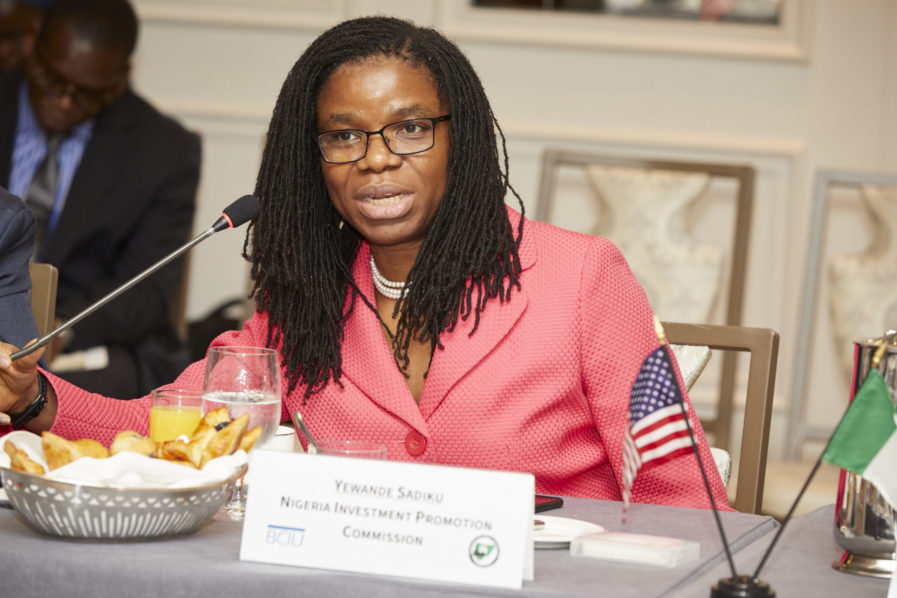
“After extensive discussions with Union officials over several days, two agreements were signed by all parties,” NIPC Staff Union said in a statement.
“With all tensions quelled, the Head Office of the NIPC reopened today, 20 July 2020 for normal business activities.”
On Thursday, 9 July, the entrance to the Commission was barricaded and gates shut by Unions members flashing multi-coloured posters with “Yewande Must Go” emblazoned on them.
The protesters led by the Chairman of the NIPC worker’s union, Comrade Yusuf Mustapha demanded the dismissal of NIPC Executive Secretary/CEO Yewande Sadiku over “unfair treatment of workers and abuse of public funds”.
The alleged imbalanced treatment of staff was ascribed to non-payment of staff welfare allowances since 2019, even after approval by the Governing Council of NIPC in October 2018.
[ad]
Sadiku, however, while reacting to the allegations against her, she said staff have been enjoying allowances since 2007.
“Staff have been enjoying various allowances since 2007, and these allowances were enhanced in 2018 with the introduction of three new packages – Productivity Allowance, Post Service Benefit Scheme and Staff Housing Loan Scheme,” Sadiku said.
“A Group Life Insurance Policy was also introduced in 2020.”
“The non-remittance of allowances was first delayed due to an Exparte Order by the Court, restraining the agency from spending its IGR, and then by the need to get the required clearance from the relevant government agency; a 2007 policy requirement that NIPC only became aware of in late December 2019,” she added.
In December 2019, Justice Anwuri Chikere of the Federal High Court, Abuja granted an interim order barring the Commission from spending its IGR in a suit filed by a member of the Governing Council, Hon. Ali Sani. The suit was struck out on 13 May 2020 for lack of merit.
The Commission has exponentially increased its budget for staff welfare from N28.4m in 2016 to N500m in 2020, all approved by the Governing Council.
[ad]
After intensive and extensive deliberations of all contentious issues, two agreements were signed on Friday, 17 July with representatives from NIPC’s coordinating ministry, Federal Ministry of Industry, Trade and Investment, Federal Ministry of Labour and Employment, NIPC Governing Council and Association of Senior Civil Servants of Nigeria.
The 12-point agreement signed by all representatives present contained detailed resolution on each grouse.
It was agreed that payments of the allowances that caused the agitation will commence after clearance from NSIWC.
The Procurement Commission is expected to complete its inspection during the week and present their recommendations to the Board before the end of next month.
“We are happy that the grievances between parties have been put aside, and everyone can continue ensuring the economic prosperity of the country,” the Permanent Secretary, Federal Ministry of Labour and Employment, William Alo said.
[ad]



